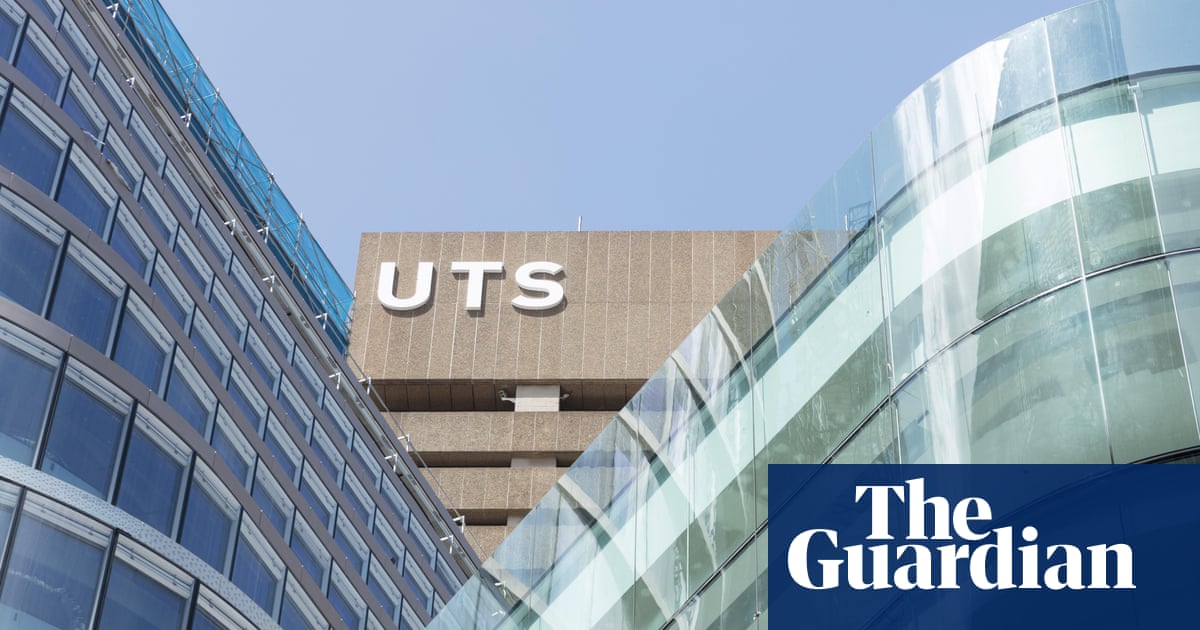The University of Technology Sydney will release its restructure proposal after SafeWork NSW lifted its order that the institution must pause job cuts over the risk of “serious and imminent risk of psychological harm” to staff.
Vice-chancellor Prof Andrew Parfitt, told a Senate inquiry into university governance the prohibition notice was removed on Friday afternoon after work with health and safety representatives.
Last week, UTS halted its restructure after a rare intervention by the government body, leading to the cancellation of meetings with hundreds of staff and the deferment of the proposal’s release.
Parfitt told the inquiry he recognised it was a “stressful time” for staff and future meetings would be arranged on Monday to consult on the changes.
“We’re balancing two stressful circumstances: the stress of people who want to know what the proposal is so that they can engage in a conversation around it, and the stress of those who are potentially uncertain about the process,” he said.
“So we engaged with the SafeWork inspector on Friday to adjust the timing and the nature of the communication … We had thought that we had adequate provisions in place, but the SafeWork inspector thought otherwise.”
Sign up: AU Breaking News email
Academics at UTS have described feelings of stress and a “culture of fear” after the university temporarily paused student enrolments for 120 of its 615 courses until the end of the autumn 2026 semester, including master’s degrees in primary and secondary teaching.
It followed an announcement late last year that about 400 jobs would be lost to deliver $100m in annual savings.
The Tertiary Education Quality and Standards Agency (TEQSA) has also been investigating UTS since last month as a result of the suspension of enrolments.
Parfitt said senior staff will not be paid any bonuses, saving about $2.5m in costs. He also confirmed UTS had spent $44m on consultants last year.
The president of the UTS students’ association, Mia Campbell, told the inquiry students were “blindsided” by management and felt “abandoned” by leadership.
She refuted their claims that the changes would have no impact on current students, as many had lost the opportunity to study postgraduate options towards the end of their degrees.
Campbell read out quotes from students in the school of public health, who said a week before the cuts were announced, they attended an honours information session with “hope and ambition”.
“We were blindsided by news of the suspension of this program,” the students wrote.
“For many of us in public health, we chose to study this degree on the basis we would have a solid pathway to complete a bachelor, honours and PhD, but now we may not be able to.”
Campbell said some PhD supervisors had already been made aware that they might have to supervise students for free if they were subject to job losses next year.
“In my classes I’ve seen tutors and peers frustrated and demoralised by the uncertainty and loss of direction of the university,” she said.
“Many students are hearing bleak warnings from staff … I worry about how employers will interpret the value of my degree, considering UTS has decided to discontinue it.”
The deputy vice-chancellor of UTS, Prof Kylie Readman, told the inquiry about 1,000 prospective students were expected to be affected by the pause. Of the suspended courses, she said 33 had fewer than 10 enrolments, and a further 31 had no students enrolled.
Greens deputy leader and higher education spokesperson, senator Mehreen Faruqi, pressed Parfitt on “fear and mistrust” among staff to speak openly, who were instead resorting to “closed door meetings and encrypted WhatsApp groups”.
He said “genuine and open consultation around challenging issues needs to occur”.
Parfitt said universities in Australia were facing an “unprecedented” amount of pressure amid a “long list” of challenges, including financial constraint, wage underpayments and campus safety concerns.
“In my 30 years in the sector … I have never witnessed such a confluence of challenges currently facing our institutions,” he said.
A spokesperson for SafeWork NSW said UTS had taken “appropriate action” to comply with the prohibition notice after it was issued due to “allegations of a risk of psychological harm”.
“SafeWork NSW is committed to supporting businesses in meeting their compliance obligations to provide a working environment that supports worker safety and wellbeing during all phases of business operations, including times of change,” they said.

